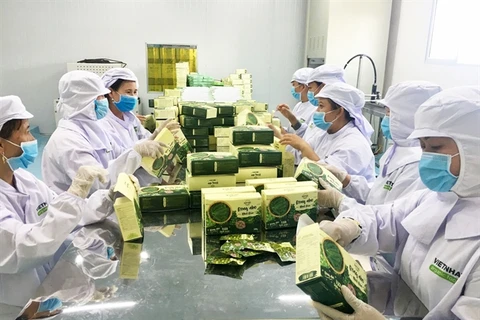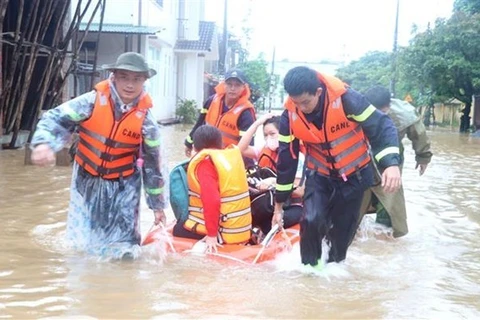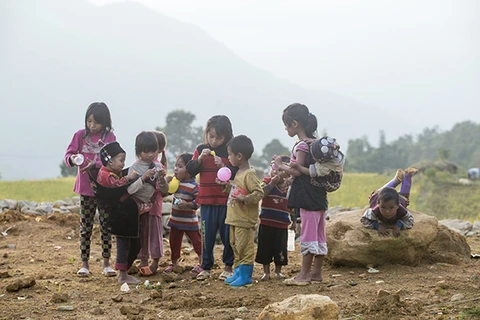Hanoi (VNA) – Severe acute malnutrition (SAM) can only be effectively treated with nutritional products properly prescribed by medical specialists. Therefore, Vietnam needs a specific legal framework.
The United Nations Children's Fund (UNICEF) recently revealed evidence on a global scale regarding the increase of malnutrition among children.
The organisation called on all countries and territories to improve policy on nutrition and include acute malnutrition in children in health programmes and budgets for long-term development.
According to UNICEF, the problem of malnutrition is common in Vietnam. Data in 2019 indicated that about 230,000 children under 5 years old suffer from SAM.
UNICEF Representative in Vietnam Rana Flowers said the Southeast Asian nation has set up “a good enabling environment for SAM prevention and treatment, with clear political commitments”.
“However, there are no policies nor funding sources identified in central or local budgets for Integrated Management of Acute Malnutrition interventions. Some 90 percent of SAM cases go untreated. Now’s the time to accelerate ongoing efforts by taking action to include examinations and treatment of SAM children in the revision of the Law on Medical Examination and Treatment”, she added.
The nationwide expansion of this intervention requires a funding mechanism for the management and treatment of children with SAM. To reach every child with life-saving treatment, UNICEF is calling on countries to include treatment for child hunger under health insurance and long-term development funding schemes so that all children can benefit from treatment programmes.
Given that SAM can only be treated effectively by using specialised therapeutic nutritional products that need to be prescribed under medical guidance, the treatment of SAM requires a specific legal framework to enable access in Vietnam. Amendment of the various laws related to health which are being reviewed currently and in the near future – including the revision of the Law on Medical Examination and Treatment — offer a unique opportunity to address the poor access to treatment.
Flowers said by incorporating and specifying the use of therapeutic nutritional products for treatment for children with SAM into the amendment of laws that are being reviewed now, Vietnam will pave the way to save the lives of an estimated 230,000 children every year.
“Otherwise, these children face the risk of dying from a disease that can be easily prevented and treated. Vietnam has the resources and capacity to prevent these unnecessary deaths by ensuring that children with SAM have the health care and treatment they need to survive, thrive and develop to their full potential”, UNICEF Representative remarked.
Malnutrition is listed as a disease in the World Health Organisation's (WHO) International Classification of Diseases, and it is a preventable and treatable disease. Wasting, defined as low weight-for-height, is the most visible and lethal type of malnutrition. Severe wasting, where children are too thin for their height resulting in weakened immune systems, is the most immediate, visible and life-threatening form of malnutrition.
Worldwide, at least 13.6 million children under five suffer from severe wasting, resulting in 1 in 5 deaths among this age group.
Given the close links between SAM, stunting and mortality, interventions aimed at prevention and treatment of SAM will help to further reduce both child mortality and stunting. Vietnam has prioritised nutrition policies through resolutions and subsequent directives emphasising stunting reduction and enhancement of nutrition care. Prevention and treatment of children with SAM is one of the key objectives of the National Nutrition Strategy 2021–2030 and National Targeted Programmes.
UNICEF promotes the rights and wellbeing of every child. Together with its partners, the organisation works in 190 countries and territories to translate that commitment into practical action, focusing special effort on reaching the most vulnerable and excluded children, to the benefit of all children./.

Sea grape cultivation thrives in coastal provinces
Sea grape cultivation has become a route to prosperity for many people in the south-central province of Khanh Hoa due to increased demand for the product in Vietnam and overseas.























